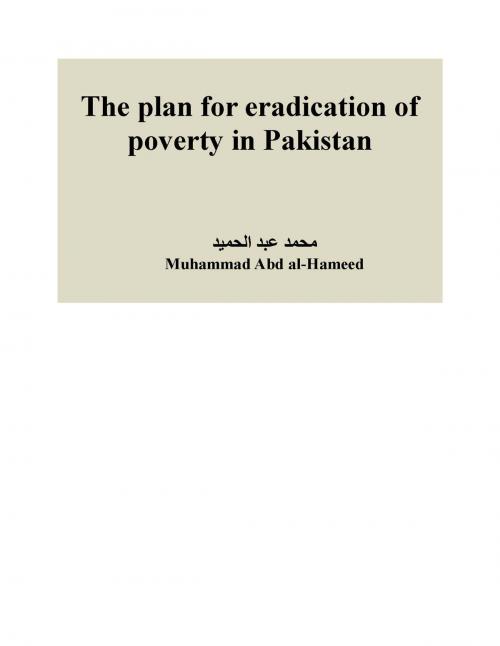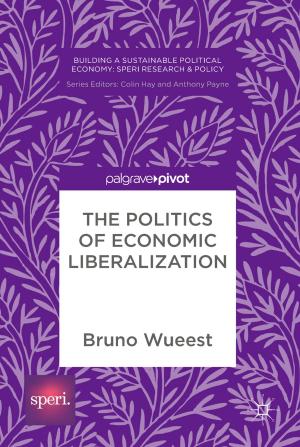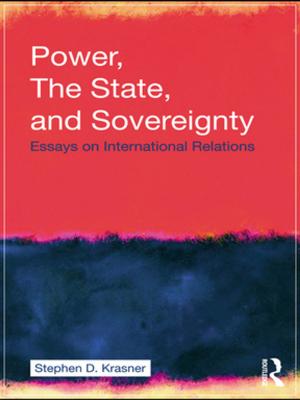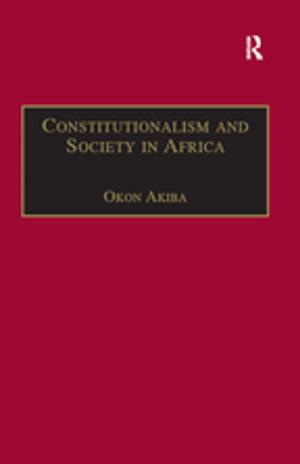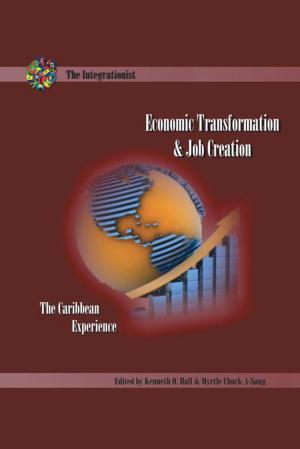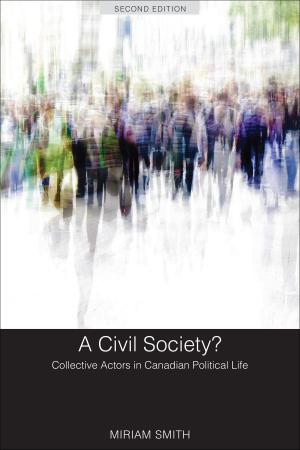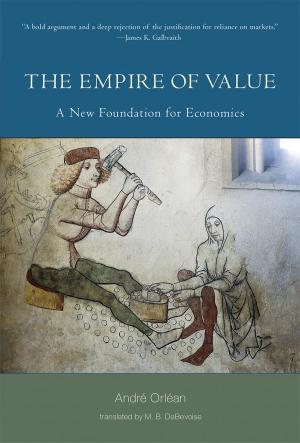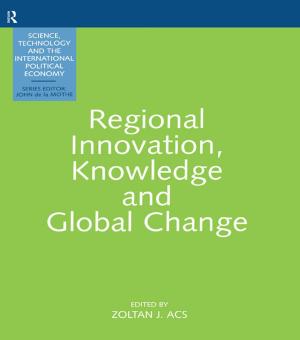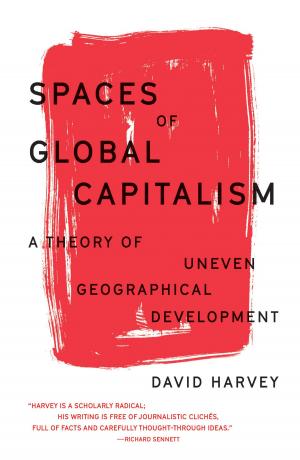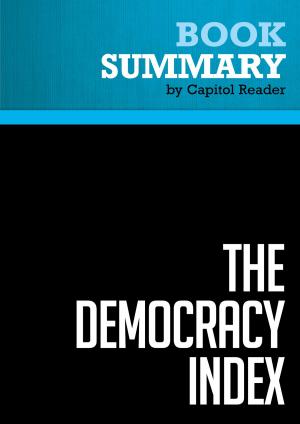The plan for eradication of poverty in Pakistan
Nonfiction, Social & Cultural Studies, Political Science, Politics, City Planning & Urban Development, Government, Local Government, Economic Conditions| Author: | Muhammad Abd al-Hameed | ISBN: | 1230000018797 |
| Publisher: | Muhammad Abd al-Hameed | Publication: | July 10, 2012 |
| Imprint: | Language: | English |
| Author: | Muhammad Abd al-Hameed |
| ISBN: | 1230000018797 |
| Publisher: | Muhammad Abd al-Hameed |
| Publication: | July 10, 2012 |
| Imprint: | |
| Language: | English |
The book gives a comprehensive plan for eradication of poverty in Pakistan. (With necessary modifications, it can work also in other poor countries.) It offers answers to all questions:
How will lifetime occupancy of housing and buildings replace ownership? How will the new system generate regular income more than the present federal budget of three trillion rupees, despite abolition of all taxes (except VAT and customs duty)? How will transparency be ensured in all transactions and corruption in all forms eliminated?
Who will start and undertake reconstruction all over the country, without giving any active role to the government? How will new self-sufficient settlements (each with 20,000 population) replace present villages? How will every family get a modern flat and space for business in new settlements at a nominal rent? Who will provide free education and healthcare for all? (Not Government!) How will all Government employees get rent-free housing? Where will be shifted all factories in present cities? Who will construct buildings for industries and housing for their employees in new settlements and provide them on rent? How uninhabited and least developed areas will be industrialized? How will all industries and businesses get loans without interest? How will farmers get agricultural land enough for living and interest-free loans?
The implementation of the plan will also transform the political and economic systems through an evolutionary manner, without any compulsion at any stage and without any drastic measures like nationalization. It will also introduce direct democracy, in which voters will give their opinion on every measure, making elected representatives unnecessary. Annual vote of confidence will replace elections for all top officials and heads of departments in every settlement. The government will wither away at local and provincial levels.The book gives a comprehensive plan for eradication of poverty in Pakistan. (With necessary modifications, it can work also in other poor countries.) It offers answers to all questions:
How will lifetime occupancy of housing and buildings replace ownership? How will the new system generate regular income more than the present federal budget of three trillion rupees, despite abolition of all taxes (except VAT and customs duty)? How will transparency be ensured in all transactions and corruption in all forms eliminated?
Who will start and undertake reconstruction all over the country, without giving any active role to the government? How will new self-sufficient settlements (each with 20,000 population) replace present villages? How will every family get a modern flat and space for business in new settlements at a nominal rent? Who will provide free education and healthcare for all? (Not Government!) How will all Government employees get rent-free housing? Where will be shifted all factories in present cities? Who will construct buildings for industries and housing for their employees in new settlements and provide them on rent? How uninhabited and least developed areas will be industrialized? How will all industries and businesses get loans without interest? How will farmers get agricultural land enough for living and interest-free loans?
The implementation of the plan will also transform the political and economic systems through an evolutionary manner, without any compulsion at any stage and without any drastic measures like nationalization. It will also introduce direct democracy, in which voters will give their opinion on every measure, making elected representatives unnecessary. Annual vote of confidence will replace elections for all top officials and heads of departments in every settlement. The government will wither away at local and provincial levels.
It is a plan for complete and permanent eradication of poverty. It is primarily for Pakistan but can be implemented in all poor countries with necessary modification. The author can helo as a consultant..
The book gives a comprehensive plan for eradication of poverty in Pakistan. (With necessary modifications, it can work also in other poor countries.) It offers answers to all questions:
How will lifetime occupancy of housing and buildings replace ownership? How will the new system generate regular income more than the present federal budget of three trillion rupees, despite abolition of all taxes (except VAT and customs duty)? How will transparency be ensured in all transactions and corruption in all forms eliminated?
Who will start and undertake reconstruction all over the country, without giving any active role to the government? How will new self-sufficient settlements (each with 20,000 population) replace present villages? How will every family get a modern flat and space for business in new settlements at a nominal rent? Who will provide free education and healthcare for all? (Not Government!) How will all Government employees get rent-free housing? Where will be shifted all factories in present cities? Who will construct buildings for industries and housing for their employees in new settlements and provide them on rent? How uninhabited and least developed areas will be industrialized? How will all industries and businesses get loans without interest? How will farmers get agricultural land enough for living and interest-free loans?
The implementation of the plan will also transform the political and economic systems through an evolutionary manner, without any compulsion at any stage and without any drastic measures like nationalization. It will also introduce direct democracy, in which voters will give their opinion on every measure, making elected representatives unnecessary. Annual vote of confidence will replace elections for all top officials and heads of departments in every settlement. The government will wither away at local and provincial levels.The book gives a comprehensive plan for eradication of poverty in Pakistan. (With necessary modifications, it can work also in other poor countries.) It offers answers to all questions:
How will lifetime occupancy of housing and buildings replace ownership? How will the new system generate regular income more than the present federal budget of three trillion rupees, despite abolition of all taxes (except VAT and customs duty)? How will transparency be ensured in all transactions and corruption in all forms eliminated?
Who will start and undertake reconstruction all over the country, without giving any active role to the government? How will new self-sufficient settlements (each with 20,000 population) replace present villages? How will every family get a modern flat and space for business in new settlements at a nominal rent? Who will provide free education and healthcare for all? (Not Government!) How will all Government employees get rent-free housing? Where will be shifted all factories in present cities? Who will construct buildings for industries and housing for their employees in new settlements and provide them on rent? How uninhabited and least developed areas will be industrialized? How will all industries and businesses get loans without interest? How will farmers get agricultural land enough for living and interest-free loans?
The implementation of the plan will also transform the political and economic systems through an evolutionary manner, without any compulsion at any stage and without any drastic measures like nationalization. It will also introduce direct democracy, in which voters will give their opinion on every measure, making elected representatives unnecessary. Annual vote of confidence will replace elections for all top officials and heads of departments in every settlement. The government will wither away at local and provincial levels.
It is a plan for complete and permanent eradication of poverty. It is primarily for Pakistan but can be implemented in all poor countries with necessary modification. The author can helo as a consultant..
